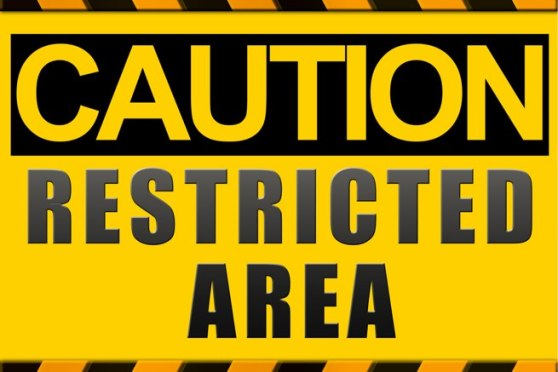Do State Blue Sky Laws Apply To Rule 506(c) Offerings? Going Public Lawyers
Issuers are often unaware of the state laws that apply to their private placements prior to completion of their going public transactions. Federal securities laws require that the purchase or sale of a security be subject to a registration statement under the Securities Act of 1933 (the “Securities Act”) or exemptfrom registration. Rule 506 of Regulation D under the Securities Act provides an exemption for private placement offerings. The JOBS Act amended Rule 506 by creating Rule 506(c) which allows general solicitation and advertising in private placement offerings so long as sales are made only to accredited investors.
Issuers conducting any offer or sale of securities must consider state blue sky laws that may be relevant to their offering. Securities offerings under Rule 506 are deemed to be covered securities under the federal law, which preempts the states from substantively regulating Rule 506 offerings under state securities or blue sky laws. Read More
Restricted Legends, Removal Requirements, Rule 144 for Shells – Tradability Legal Opinions
The Securities Act of 1933, as amended (the “Securities Act”) does not require that issuers place restricted legend (“Restricted Legends” or “Restrictive Legend“) on certificates representing restricted securities. It has become routine for public companies and private companies seeking to go public to place Restricted Legends on certificates. It is also common practice for an issuer’s transfer agent to require that the issuer place Restricted Legends on stock certificates representing restricted securities. Restricted Legends provide notice to shareholders as well as to third parties that the securities represented by the stock certificate cannot be resold unless registered under the Securities Act or an exemption from registration is available. To remove the restricted legend, the issuer and/or its transfer agent will require a tradability legal opinion.
Rule 163B and Testing the Waters
On February 19, 2019, the SEC posted a new proposed rule intended to make it possible for all issuers to “test the waters” when contemplating a public offering of securities. Until now, only issuers considered emerging growth companies (EGCs) under the JOBS Act of 2012 qualified to solicit investor interest prior to a registered public offering. An EGC is defined as an issuer with “total annual gross revenues of less than $1.07 billion during its most recently completed fiscal year and, as of December 8, 2011, had not sold common equity securities under a registration statement”. A company continues to be an emerging growth company for the first five years after it completes an Initial Public Offering (“IPO”). Its status will change only if its gross revenues exceed the $1.07 billion threshold, if it has issued more than $1 billion in non-convertible debt, or it becomes a large accelerated filer.
In addition being allowed to test the waters—with the object of gauging investor interest in an initial public offering (IPO)—the JOBS Act conferred other advantages on EGCs, most of them having to do with less stringent SEC Reporting Requirements in quarterly and annual reports. Another benefit enjoyed by these fledgling companies was the ability to file draft registration statements with the SEC confidentially. When an EGC files a confidential initial registration statement, the filing itself is not made available to the public, and the review process is between the company and the SEC’s Division of Corporation Finance. The original submission and subsequent amendments need not be made public until 15 days prior to the start of the company’s road show. Read More
The Cato Institute Files Action Challenging SEC Gag Orders
On January 9, the Cato Institute filed suit against the Securities & Exchange Commission (the “SEC”), its chairman Jay Clayton, and its secretary Brent J. Fields. For decades, questions have been raised, and criticisms offered, of the SEC’s longstanding practice of requiring (or allowing, depending on one’s point of view) settling defendants in enforcement actions to sign consent decrees in which they “neither admit nor deny” the charges lodged against them. Thanks to a standard clause in their decrees, for the rest of their lives, the defendants will be prevented from explaining what really happened, if their views don’t coincide with the agency’s. These strictures apply to corporate as well as individual defendants.
The Cato Institute believes these SEC Gag Orders are wrong. Cato is a libertarian think tank located in Washington, D.C. It was founded in 1974 in Wichita, Kansas, as the Charles Koch Foundation, and was at first wholly funded by Koch. It’s by now considered one of the most influential think tanks in the world. Cato is not a public company, and is not regulated by the SEC. Ordinarily, it would have lacked standing to sue the agency, but thanks to special circumstances, it was able to file a complaint for declaratory and injunctive relief. Read More
When is a Form S-1 Confidential? Going Public Securities Lawyers

Form S-1 is a common part of the going public process. In some circumstances Form S-1 filings can remain confidential prior to effectiveness. This Q&A discusses common questions we receive about confidential submissions on Form S-1.
Q. When does an emerging growth company have to file its Form S-1 registration statement if it wants the submission to be confidential?
A. The JOBS Act requires that emerging growth companies file the initial confidential submission of its Form S-1 Registration Statements and all amendments with the SEC within 21 days prior to the anticipated effectiveness of the registration statement or road shows. These prior confidential submissions should be included as exhibits to the company’s later publicly filed registration statement, if any. This applies to both public companies and companies involved in going public transactions. Read More
Scottsdale and John Hurry Push Back to Stop FINRA Investigation

On December 17, 2018, John Hurry broker dealer, Scottsdale Capital Advisers Corporation sued the Financial Industry Regulatory Authority (“FINRA”), for breach of contract in the U.S. District Court for the District of Columbia. Scottsdale and its sister company, Alpine Securities, Inc., are broker-dealers controlled by John Hurry and his wife Justine Hurry. Both companies are FINRA members. Both John and Justine Hurry are registered brokers regulated by FINRA.
The complaint alleges that FINRA has breached its agreement with and obligations to member firms by its “increasing and current failure to provide fair and meaningful representation” to them, and by taking “affirmative acts that have the effect if not the purpose of burdening competition, harming not only member firms but also issuers and customers.” Broadly, Scottsdale is saying that rather than help small securities firms, it’s unfairly attacking and damaging them:
Through… improper enforcement efforts, FINRA has… engaged in “unfair discrimination” against certain of its members in violation of its governing statute and By-Laws. It has aggressively targeted and sought to punish or even eliminate specific segments of the securities market. Through its coercive actions against smaller member firms who are engaged in the microcap and low-priced securities business, FINRA has gotten to the point that it is gutting the ability of firms, issuers and investors to participate in that market. Read More
Due Diligence in Accredited Crowdfunding Offerings – Securities Lawyer 101
The Anti-Fraud Provisions That Apply to Accredited Crowdfunding
Even though Accredited Crowdfunding Offerings are exempt under Rule 506(c) and no specific disclosure requirements apply, under most circumstances, the anti-fraud provisions mandate disclosure of certain information to investors. Section 10(b) of the Securities Exchange Act of 1934, (the “Exchange Act”) prohibits the use of any manipulative or deceptive device in contravention of the Securities & Exchange Commission’s rules and regulations. Rule 10b-5, was adopted pursuant to Section 10(b), and prohibits fraudulent devices and schemes, material misstatements and omissions of any material facts, and acts and practices that operate as a fraud or deceit on any person in connection with the purchase or sale of a security. Read More

























 The SEC filed a subpoena enforcement action against three penny-stock companies and their CEO – Cherubim Interests, Inc., PDX Partners, Inc., Victura Construction Group, Inc., and Patrick Jevon Johnson – seeking an order directing them to comply with investigative subpoenas for documents.
The SEC filed a subpoena enforcement action against three penny-stock companies and their CEO – Cherubim Interests, Inc., PDX Partners, Inc., Victura Construction Group, Inc., and Patrick Jevon Johnson – seeking an order directing them to comply with investigative subpoenas for documents. A Taiwan-based insurance company, China United Insurance Service, Inc. and one of its former managers have agreed to settle fraud charges brought by the SEC relating to a scheme to manipulate the company’s trading volume.
A Taiwan-based insurance company, China United Insurance Service, Inc. and one of its former managers have agreed to settle fraud charges brought by the SEC relating to a scheme to manipulate the company’s trading volume. On November 9, 2018, the SEC obtained a judgment against John Place, a former CEO of a brokerage consulting business who was charged by the SEC in August for his role in a multimillion dollar transition management fraud.
On November 9, 2018, the SEC obtained a judgment against John Place, a former CEO of a brokerage consulting business who was charged by the SEC in August for his role in a multimillion dollar transition management fraud. The SEC announced on December 14, 2018 charges against Thomas Laws, the former CEO of Santa Fe Gold Corporation, for the misappropriation of investor funds. The SEC also obtained an asset freeze against Thomas Laws.
The SEC announced on December 14, 2018 charges against Thomas Laws, the former CEO of Santa Fe Gold Corporation, for the misappropriation of investor funds. The SEC also obtained an asset freeze against Thomas Laws. The SEC has obtained a final judgment against Gregory Webb, the former Chairman and CEO of a company purportedly in the homeland security business.
The SEC has obtained a final judgment against Gregory Webb, the former Chairman and CEO of a company purportedly in the homeland security business.


